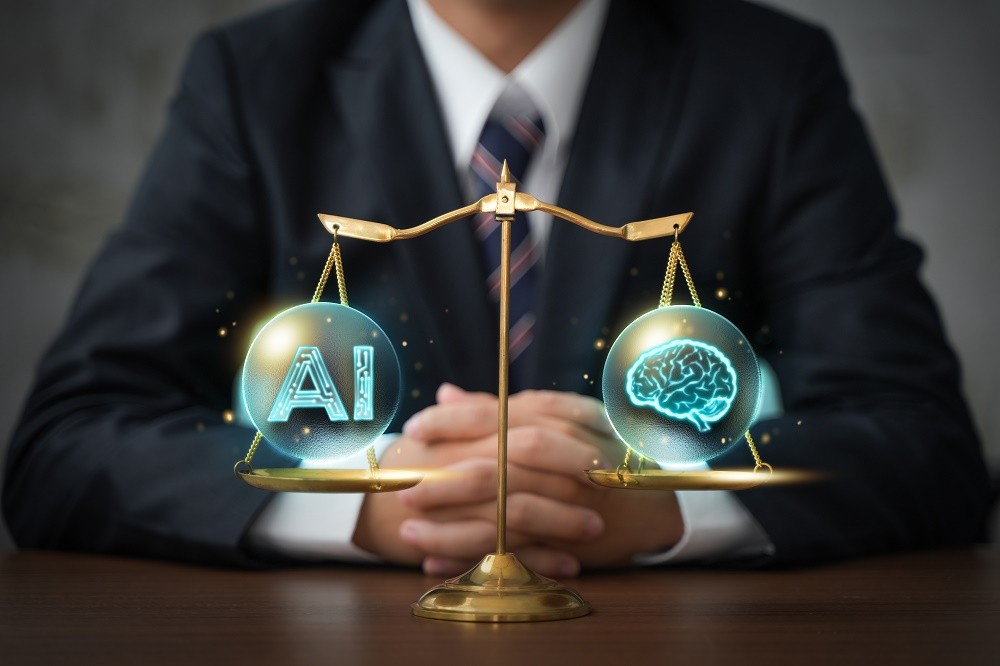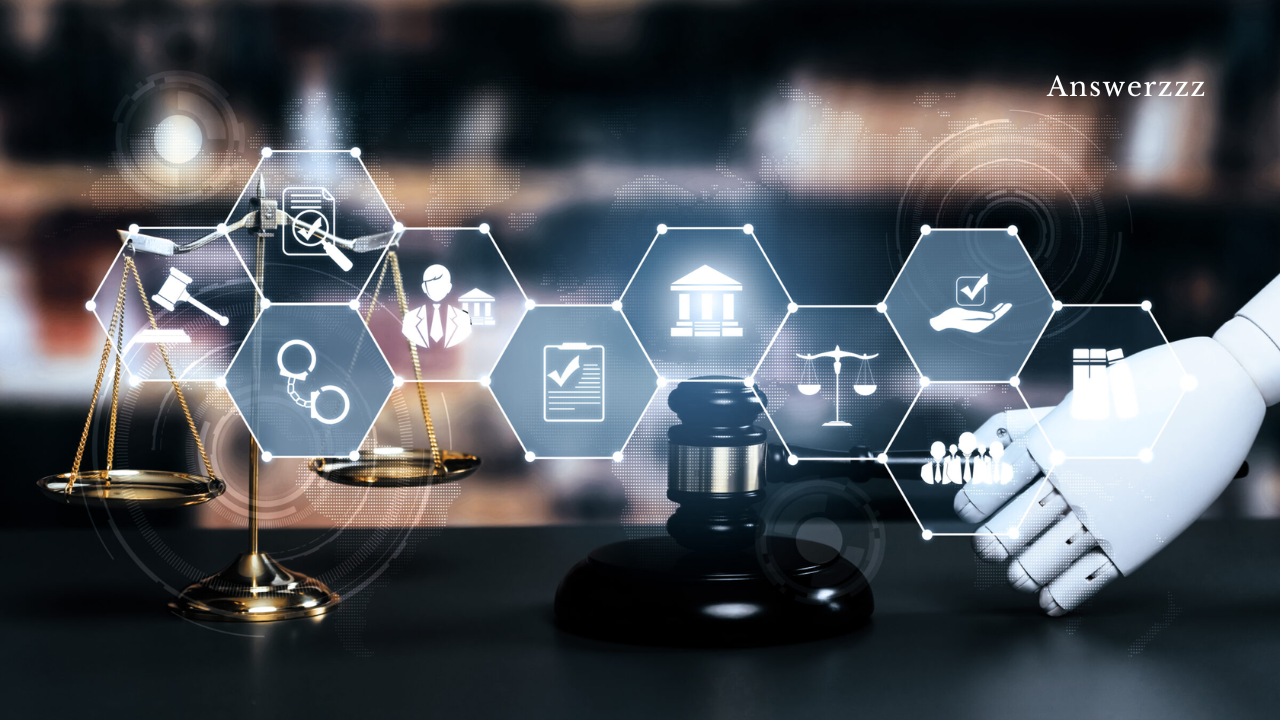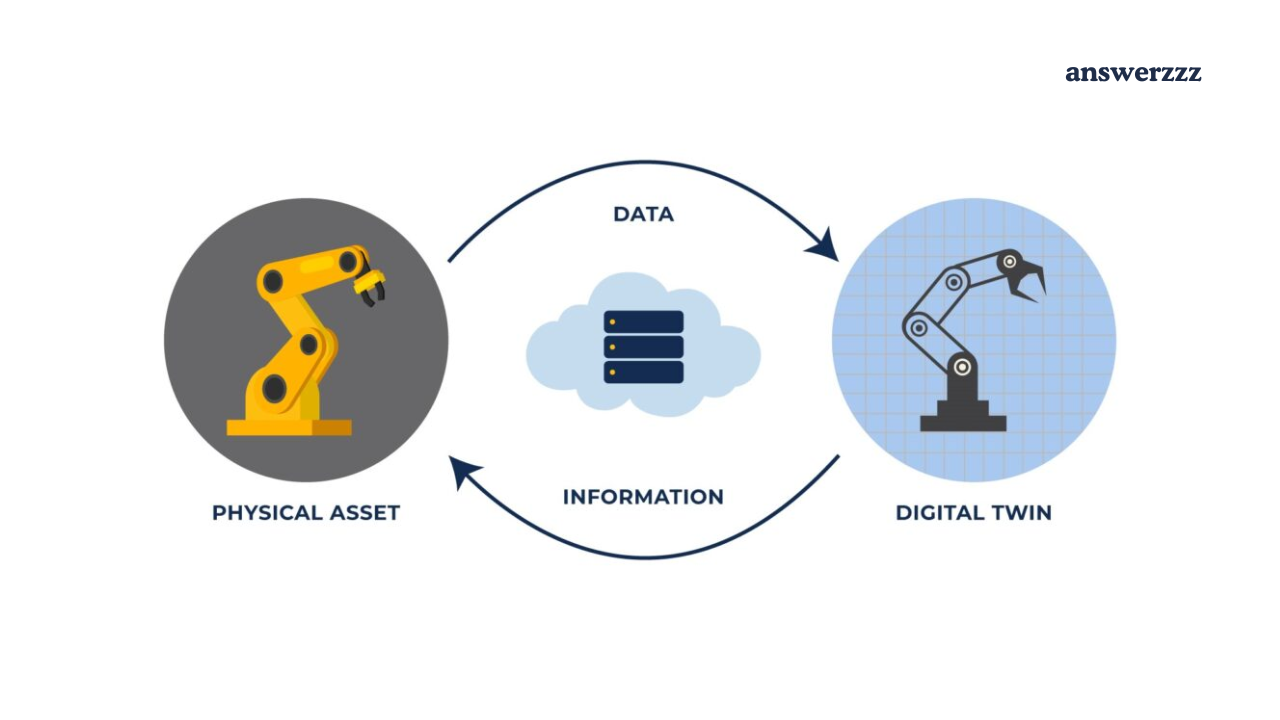The integration of artificial intelligence (AI) in legal technology is revolutionizing the legal industry. Traditionally known for its complex processes, high dependency on documentation, and rigid adherence to procedure, the legal sector has been slower than others to adopt technological advancements. However, with the rise of AI, the industry is now experiencing rapid transformation. From contract review and document analysis to case predictions and client service, AI is streamlining legal processes, reducing operational costs, and enhancing productivity.
In this article, we will explore how AI is reshaping legal tech, the benefits it brings to legal professionals and clients, the challenges faced, and the future of AI in the legal industry.
What is AI in Legal Tech?

AI in legal tech involves the application of artificial intelligence algorithms, including machine learning, natural language processing (NLP), and predictive analytics, to automate and improve various legal processes. By automating repetitive tasks and enabling more accurate data analysis, AI tools help legal professionals focus on higher-value activities, such as strategizing for cases and providing counsel.
Legal AI solutions are particularly effective in handling tasks like:
- Contract review and management
- Legal research and case analysis
- Predictive analysis for case outcomes
- E-discovery and document review
- Client service and communication
These applications of AI are providing law firms and corporate legal departments with unprecedented levels of efficiency and accuracy.
Key Applications of AI in Legal Processes
1. Contract Review and Management
Contract review is one of the most time-consuming tasks in the legal field. Traditionally, attorneys need to read through numerous contracts line by line, ensuring that each clause is appropriate and that no terms are detrimental to the client. AI-powered tools like Kira Systems and Luminance utilize NLP to scan, identify, and analyze key clauses in contracts.
These tools streamline the contract review process by:
- Automating clause identification and comparison
- Highlighting potential risks and non-standard terms
- Ensuring compliance with regulatory standards
- Generating summaries to expedite decision-making
This not only saves countless hours but also reduces human error, making contract reviews faster and more reliable.
2. Legal Research and Case Analysis
Legal research is a fundamental part of legal practice, but it can be incredibly time-intensive. AI-powered legal research tools such as ROSS Intelligence and CaseText utilize machine learning to analyze vast amounts of legal texts, case law, and statutes, delivering precise information more quickly.
These tools provide legal professionals with:
- Enhanced accuracy by pinpointing relevant cases and precedents
- Faster research outcomes through quick data retrieval and analysis
- Predictive insights on case outcomes based on past judgments
By streamlining research, AI enables lawyers to focus more on building effective arguments and less on data retrieval.
3. Predictive Analytics for Case Outcomes
Predictive analytics allows lawyers to assess the probability of different case outcomes based on past cases and current legal trends. AI systems, such as Lex Machina and Premonition, analyze historical case data to predict how a judge might rule, the likely duration of a case, and the potential costs involved.
The benefits include:
- Improved strategic planning based on data-driven insights
- Enhanced client communication with realistic expectations of outcomes
- Increased negotiation power by understanding likely case resolutions
Predictive analytics helps legal professionals make informed decisions, improving case strategy and client satisfaction.
4. E-Discovery and Document Review
E-discovery involves the identification, collection, and analysis of electronically stored information (ESI) for legal cases. With the growth of digital information, e-discovery has become a complex and resource-heavy task. AI-powered e-discovery platforms such as Relativity and Everlaw automate this process by sorting through large datasets to identify relevant information for litigation.
AI-driven e-discovery tools provide:
- Faster data processing and document analysis
- Reduced costs by minimizing manual document review
- Improved accuracy in finding pertinent information
These tools can process emails, documents, and communications, drastically cutting down the time needed for discovery and ensuring no critical data is overlooked.
5. Client Service and Communication
AI-powered chatbots and virtual assistants are becoming increasingly popular in law firms for handling routine client queries and providing preliminary legal guidance. Tools like LawDroid and DoNotPay allow clients to access quick, automated responses to frequently asked questions, helping law firms enhance client service.
These chatbots provide benefits such as:
- 24/7 client support, improving client satisfaction
- Reduced need for human intervention in routine queries
- Improved client intake processes by gathering basic information
AI-driven client service tools allow legal teams to focus on more complex client issues, enhancing client relationships while reducing administrative burdens.

Benefits of AI in Legal Tech
1. Increased Efficiency and Cost Savings
AI reduces the time and resources required for many labour-intensive tasks. By automating tasks like document review, legal research, and client communications, law firms can operate with greater efficiency and reduce overall costs. These savings are often passed on to clients, making legal services more accessible.
2. Enhanced Accuracy and Consistency
Humans are prone to errors, particularly when dealing with extensive amounts of data. AI-driven systems provide a higher level of accuracy, especially in tasks that involve data processing and document review. Consistent and reliable outcomes help build trust and improve service quality.
3. Improved Decision-Making
AI tools provide data-driven insights, enabling legal professionals to make informed decisions. Predictive analytics, in particular, offers valuable foresight, helping attorneys assess risks, estimate case timelines, and prepare effective strategies.
4. Better Resource Allocation
With AI handling routine and repetitive tasks, legal teams can allocate more resources to high-value work. This results in better case outcomes, improved employee satisfaction, and a more innovative approach to legal problem-solving.
5. Greater Access to Justice
AI in legal tech can make legal services more affordable and accessible, especially for small businesses and individuals who may not have the resources for traditional legal representation. Tools like DoNotPay aim to empower users with free or low-cost legal solutions, providing wider access to justice.
Challenges of Implementing AI in Legal Tech
1. Ethical and Privacy Concerns
Legal processes involve sensitive client information, and the use of AI raises concerns about data privacy and security. It is crucial to ensure that AI systems adhere to data protection regulations, such as the General Data Protection Regulation (GDPR) and the California Consumer Privacy Act (CCPA), to protect client confidentiality.
2. Resistance to Change
The legal profession has a traditional, risk-averse culture that often resists change. Many law firms are reluctant to adopt AI technology due to concerns about job security, perceived complexity, and costs of implementation. Change management strategies are essential to facilitate AI adoption in the industry.
3. Bias in AI Algorithms
AI algorithms can unintentionally reflect biases present in their training data, potentially leading to unfair or biased outcomes in legal cases. Ensuring AI fairness and impartiality is critical to avoiding discrimination and maintaining trust in AI-powered legal tools.
4. High Implementation Costs
While AI can reduce costs in the long term, initial setup costs for AI-powered legal tech solutions can be high, particularly for small firms. Investment in the right technology and personnel training is essential to fully realize the benefits of AI in legal tech.
5. Regulatory Challenges
Legal AI applications operate within complex regulatory frameworks. Ensuring that AI-driven legal processes comply with constantly evolving laws and regulations can be challenging for law firms and technology providers alike.
The Future of AI in Legal Tech
The adoption of AI in legal tech is expected to grow as technology advances and law firms become more comfortable with AI-driven processes. Emerging trends in the field include:
1. Greater Integration of AI in Courtrooms
AI-powered tools for case prediction and virtual court assistance could be integrated more directly into courtroom proceedings, helping judges and attorneys with real-time insights, legal precedents, and case data.
2. Personalized AI for Client Service
As AI becomes more sophisticated, it will be able to offer personalized legal guidance to clients based on their unique situations. This will allow law firms to provide a higher level of service and build stronger relationships with clients.
3. Predictive Justice Systems
AI could potentially predict judicial outcomes with greater accuracy, helping attorneys gauge the likelihood of success in litigation. This would bring a more data-driven approach to litigation strategy, enabling firms to choose cases with higher success potential.
4. Collaborative AI Systems
The future may see AI tools collaborating to streamline complex processes. For example, a system that combines contract analysis, e-discovery, and case prediction could be used to tackle multi-faceted cases, enhancing efficiency across legal processes.
5. Blockchain and AI Integration
Blockchain technology, combined with AI, has the potential to revolutionize contract management through the use of smart contracts, which can automatically execute terms when certain conditions are met. This combination will create more secure, transparent, and efficient processes in contract management and regulatory compliance.

The use of AI in legal tech is streamlining legal processes in once unimaginable ways. From contract review to predictive case analysis, AI is empowering legal professionals with tools that save time, reduce costs, and enhance the quality of legal services. While challenges remain, including ethical concerns and regulatory compliance, the benefits of AI-driven legal tech are transforming the industry.
As AI continues to evolve, it will unlock new opportunities for law firms to provide better, more accessible legal services to clients. Embracing this technology not only keeps law firms competitive but also enhances their ability to deliver justice efficiently in a digital world.



